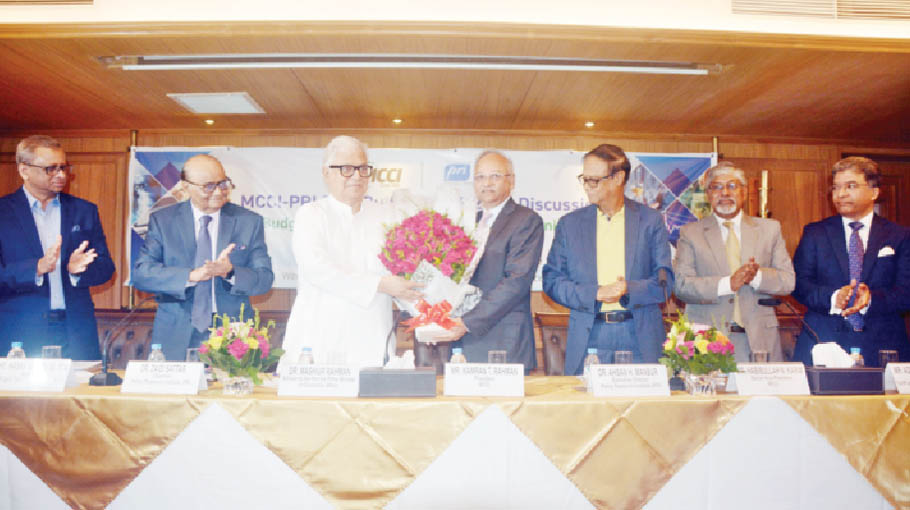‘Tight monetary policy can help curb inflation’

Ahsan H. Mansur, executive director at Policy Research Institute (PRI), has highlighted the macroeconomic context characterised by elevated inflation, reduced imports because of a shortage of dollars and sluggish export growth.
He also suggested adopting tight monetary policy to control inflation, achieve price stability, and maintain exchange rate stability while letting the market determine interest rates. The recommendation came at a post-budget discussion titled “Budget Insights: Challenges and Opportunities” organised by the Metropolitan Chamber of Commerce and Industry, Dhaka (MCCI) at its Gulshan office on Wednesday.
The event was a joint collaboration between MCCI and Policy Research Institute (PRI) of Bangladesh.
Dr. Mashiur Rahman, Adviser to the Prime Minister on Economic Affairs, graced the event as the chief guest. The event was moderated by Habibullah N. Karim, Senior Vice-President, MCCI.
MCCI President Kamran T. Rahman made welcome remarks while Dr. Zaidi Sattar, Chairman, PRI, made his introductory remarks. Later, two keynote presentations were delivered by Dr. Ahsan H. Mansur, Executive Director, PRI, and Adeeb H. Khan, FCA, Member, Tariff and Taxation Committee, MCCI. Hasan Mahmood, FCA, Chairman, Tariff and Taxation Committee, MCCI, offered a vote of thanks to the attendees.
In his keynote paper, Ahsan H. Mansur also emphasised the need for reducing government expenditure, particularly on administrative costs and subsidies, thereby limiting government borrowing from the banking system.
In his welcome remarks, Kamran T. Rahman commended the reduction of the corporate tax rate by 2.5 percent for unlisted and one-person companies and recommended applying this reduction to other listed companies too. However, he found the opportunity to whiten black money by paying 15 percent tax to be demotivating for honest taxpayers. The MCCI president believed that only raising the tax rate without expanding the tax net will not achieve the desired tax-GDP ratio. He said that having an interim evaluation of the budget after every three months would be very helpful. In his keynote presentation, Adeeb H. Khan, FCA, discussed some selected income tax and VAT provisions from the Finance Bill 2024-2025.
In the question-answer session, topics that came up include excess AIT being charged as final tax, the possibility of introducing two separate authorities for tax and VAT, and the need for bank mergers to follow proper process and include experts in the merger committee.
The chief guest stated that the liberalization of the exchange rate was a good move to deal with the macroeconomic challenges the country was facing.
He also emphasized on increasing the productivity and focusing on product and market diversification. Given Bangladesh’s unemployment level, he believed in the need for further government investments and removal of bottlenecks.
He stated that the goal of bank mergers should be to improve the bank’s capacity to lend and the suitability to borrow, thus increasing the banks’ overall strength.




